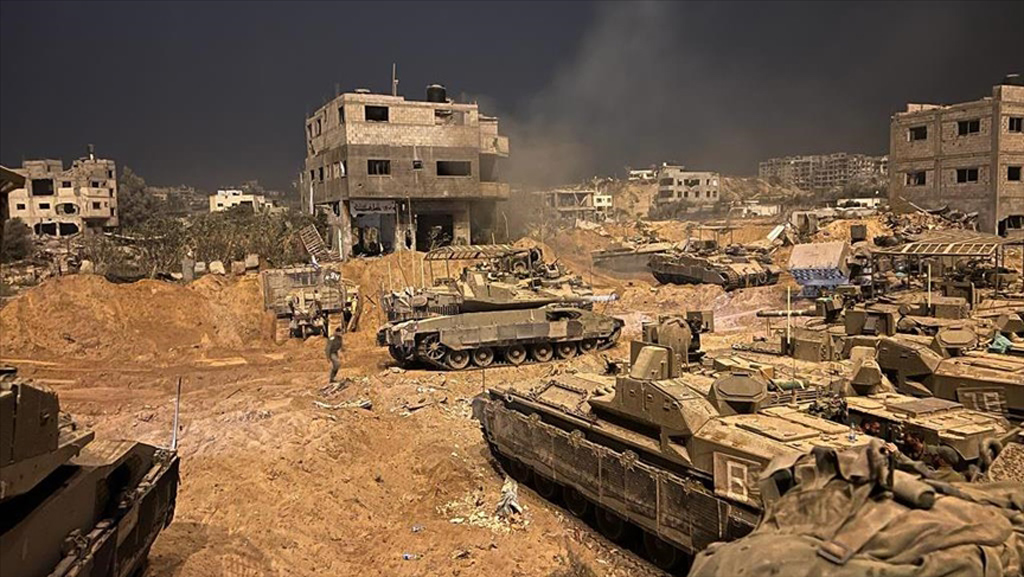Three hundred days have passed since Israel's massacres began. Over 40,000 Palestinians have been killed. When the war started, pessimistic scenarios about Israel's goals and the war's potential escalation have, unfortunately, come true one by one. After a series of assassinations carried out by the genocidal Israeli government in the past week, it is almost universally agreed that we have entered a "period of escalating conflicts."
Since Israel's attacks on Oct. 7, it has been widely said that Israel's target would not be limited to Gaza. The possibility that this process would trigger a regional war has always been on the agenda. With the massacres in Gaza, Israel first halted the "normalization" processes that were being re-established in the region. The search for a new order, which was to be built with normalization steps aimed at reducing the deepening conflicts and instabilities after the Arab uprisings, was thwarted.
At the start of the war, there was an impression that Iran would directly or indirectly attack Israel through its proxies. In fact, in the first weeks of the war, the U.S.'s increased military deployment in the region was presented as an effort to keep Iran out of the conflict.
However, the situation was the opposite. It was Israel, much more than Iran, that escalated regional tensions day by day. This was precisely what Israel wanted. By expanding the war beyond Gaza and widening the conflict through Iran and Hezbollah, Israel could make the U.S. militarily involved in the war.
On April 1, Israel bombed the Iranian Embassy in Syria. It carried out increasingly violent attacks on Iraq, Yemen, Syria, and Lebanon. Although Iran responded to Israel's policy of escalating the war from its own territory for the first time, it did not go beyond a symbolic response. Because it was a pre-planned attack and carried out with prior notice to neighboring countries and with U.S. knowledge, it caused no damage.
Although the Biden administration has warned Netanyahu's government from the beginning to avoid escalating tensions with Iran, it has consistently reiterated its support for Israel. With elections approaching, the Biden administration did not exert sufficient pressure for a cease-fire.
When international pressure on the Zionist government was increasing, its legitimacy and reputation were being increasingly questioned, and preliminary rulings from international courts were putting Netanyahu in a difficult position, a visit to the U.S. opened the door to a new process. Applause in Congress and strong support from Trump and the Republicans encouraged genocidal Israel to continue its massacres in Gaza and launch new attacks on Iran and its proxies.
Although Iran, considering its nuclear future, aims to stay out of direct conflict or respond with low-intensity reprisals, it is becoming increasingly difficult for it to maintain this position. The assassination of Ismail Haniyeh has complicated Iran's strategy of avoiding war. If, as before, it gives a symbolic response with prior notice, it will further weaken Iran's credibility, deterrence and the state image it has built.
Since Oct. 7, pessimistic scenarios have materialized. In this second phase, where the conflicts are increasingly spiraling out of control, it is anticipated that Netanyahu will carry out new attacks to drag Iran into the war until the U.S. elections. Hezbollah Secretary-General Hassan Nasrallah, emphasizing that "a new phase has begun," announced that they would give a "real response, not a symbolic one."
So far, apart from Türkiye and a few regional countries, no other nation has made genuine efforts to find a solution to this problem. The concerns that Türkiye has expressed from the beginning have come true. President Recep Tayyip Erdoğan has repeatedly warned that Israel's target is not only Palestinians and that other countries in the Middle East would be next. He stated that Israel's aggressive stance poses a threat to the future of humanity.
Finding a solution to the Israel issue first falls to the Islamic world. Worrying about Israel's future plans does not solve the problem. For a permanent solution, Türkiye has proposed long-term solutions like "guarantorship" and a "regional security alliance." If steps are not taken immediately to stop the massacre, as Foreign Minister Hakan Fidan's latest warning stated, "humanity as a whole will be responsible for this massacre."








